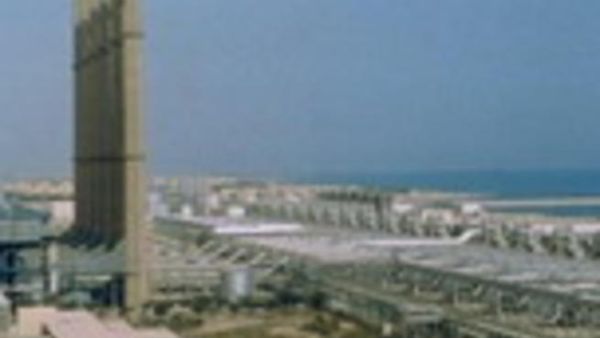Jubail, Saudi Arabia has been named the city with the best economic potential in the Middle East by the leading business publication, Financial Times Business’ Foreign Direct Investment (fDi) Magazine.
Once famous for pearling, Jubail City now stands as a glowing symbol of the Saudi Government’s vision for the country’s future development. The city has enjoyed massive foreign investments totaling to date US $46 billion, as well as rapid GDP growth. It is expected to rise even further on the map of global commerce and industry in the areas of energy and transportation. The Royal Commission for Jubail and Yanbu (RCJY) has skillfully guided Jubail I towards sustainable economic development and has recently inaugurated Jubail II with the same in-depth planning and incentives for investors that made Jubail I such a success.
Apart from being home to the world’s largest petrochemical complex, Jubail is now estimated to account for as much as 7% of the world petrochemical market.
Jubail received the award after its detailed economic information was assessed by a panel of expert judges who selected the city over 40 other economic centres in the Middle East.
Among information considered by the panel of judges was the key fact that while overall GDP growth can vary sharply from year to year because of oil sector price fluctuations, the Jubail region’s private sector contribution to GDP had grown at a steady, average rate of almost 4% per annum for the last 10 years.
Amr Abdullah Al Dabbagh, the Governor of Saudi Arabian General Investment Authority (SAGIA), noted, “This indicates an underlying stability in the economy with heavy anticipated growth because of the private sector’s continued expansion.”
Among other factors supporting Jubail’s qualifications, was that the inflow of foreign investment in Jubail was also directed towards community-responsible and environmentally conscious projects.
The panel of judges considered crucial alterations to Saudi Arabia’s legislation, moves that enhance the country’s investment attractiveness. Examples include allowing 100% direct foreign project ownership, expatriate ownership of real estate and unrestricted repatriation of capital and profits.
SAGIA had a dedicated team submit the full application for Jubail’s entry. Its investment strategy focuses on the key economic sectors that capitalize on Jubail’s strengths and investment competency in energy and transportation.
Jubail’s rapid rise to world fame is continuing with numerous joint ventures being established in the city, joining existing major capital investment projects by, among others, Sina Petrochemical Co, Bassel International Petroleum Corp, and the joint venture between the Canadian company Acetex and Saudi Arabia’s state-owned Tasnee Petrochemical Corporation. Of all foreign investment flowing into Saudi Arabia, nearly half has gone to Jubail.
There are almost 30 plants under construction in Jubail, with another two undergoing major expansions; there are another 44 on the drawing boards. A project to create the 6,200-hectare Jubail Industrial City II foresees industrial investment totaling $56 billion and the creation of 55,000 jobs.
Meanwhile, the construction of a new 1,065 km railway line to link Jubail with Jeddah via Dammam and Riyadh to form an East-West land bridge, combined with a longer line to link Jubail with the mineral-rich north, will elevate Jubail’s strategic importance even more.
In 1982, Time magazine wrote: “The search for historical comparisons with Jubail is daunting. In all the expansive sweep of civil engineering, from the pyramids of the Nile to the construction of the Panama Canal, nothing so huge, or costly, as Jubail has ever before been attempted by anyone." Time’s assessment is as applicable today as it was back then – especially as the RCJY and SAGIA work together to make Jubail’s continued growth as productive as possible.
The Royal Commission for Jubail and Yanbu was founded 30 years ago with the installation of huge its industrial infrastructure and is now one of the world’s most important industrial centers.







